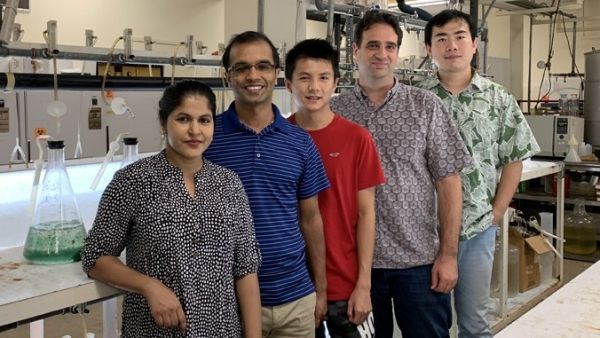A team of researchers at the University of Hawaiʻi at Mānoa came across a discovery they never intended to uncover when a graduate student attempted to verify calculated data just prior to publication of a study involving cyanobacterial natural products that inhibit cancer cell growth. Instead of confirming results, he and his professors found a glitch in a well-adapted computer program that could have an impact on more than 100 published studies citing the original paper.
The glitch involves a common nuclear magnetic resonance (NMR) computation. Graduate student Yuheng Luo was trying to verify the results of chemistry Professor Philip Williams’ group as part of our on-going collaboration. Luo realized that the results of the computation depended on the operating system of the computer, i.e. Mac OS, Windows and Linux would return different results. He reported the glitch to his advisor, chemistry Assistant Professor Rui Sun.
“We were surprised to see the initial findings, as the results of the computation should solely depend on the chemistry instead of the operating system of the computer,” Sun said. “We began comparing results obtained from different operating systems to find the source of the errors. It turned out that there is a glitch in the code that compromises the results of the calculation on certain operating systems.”
Read more at University of Hawaiʻi at Mānoa
Image Credit: University of Hawaiʻi at Mānoa


